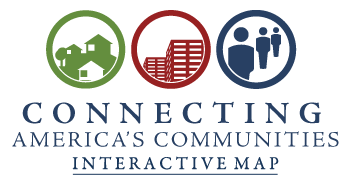BTOP in Action
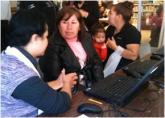
The New Mexico State Library’s Fast Forward New Mexico project recently commenced digital literacy and small business development training sessions at eight of its 17 public and tribal libraries throughout the state. These libraries included the Octavia Fellin Public Library in Gallup, Thomas Branigan Memorial Library in Las Cruces, South Broadway Public Library and South Valley Public Library in Albuquerque, as well as the Aztec Public Library, Columbus Village Library, Socorro Public Library, and Rio Rancho Public Library.
In each of these communities, Fast Forward offers eight free classes on building basic computer and Internet skills, teaching participants how to become successful online students, as well as helping cultural entrepreneurs (e.g., musicians, jewelers, and writers) and other small businesses through the use of online tools. Since many small businesses in rural New Mexico do not have websites, these classes are important because they teach participants how to set up an online presence, develop a larger strategy for reaching out to the online community, and increase revenue through e-commerce.
Each class includes eight hours of training with about two hours of open lab time for up to 15 members of the local community. Fast Forward also tailors some of the classes to meet the needs of the local unserved and underserved communities. For example, Fast Forward offered classes with a Navajo translator at two libraries close to the Navajo Reservation and classes in Spanish were offered in Columbus, Albuquerque, and Las Cruces due to the large Spanish-speaking population.
The project also has a page on Facebook and Twitter with the latest news.
Last Updated: October 18, 2011.

The New York City Department of Information Technology and Telecommunications (DoITT) and the New York City Department of Education (DOE) launched the NYC Connected Learning program in 56 low-income middle schools across New York City. The program is a citywide initiative to boost sustainable broadband adoption and enhance educational outcomes among sixth grade students and their families. DoITT and DOE partner with a range of non- and for- profit organizations to provide free computers, discounted broadband service, comprehensive digital literacy training, and technical support to participating families.
Computers for Youth (CFY), a national non-profit focused on improving the educational learning environments for low-income children, hosts Family Learning Workshops at these schools, teaching students and their parents about the educational uses of home technology and broadband. CFY also provides participants with a broadband-ready Home Learning Center, broadband enrollment guidance, and access to high-quality, online educational software focused on math, English, social studies, and science. The program’s professional development partners, Teaching Matters and the Australian United States Services in Education (AUSSIE), provide each school with an Instructional Technology Coach (ITC) responsible for training teachers to use computers to enhance classroom activities. The program also provides teachers with digital literacy curricula through its partnership with Common Sense Media. NYC Connected Learning partners with The City University of New York (CUNY) and MOUSE Squad to help schools set up a student-run help desk that provides technical support and general troubleshooting. NYC Connected Learning participants also receive discounted rates for high speed Internet from Cablevision and Time Warner Cable.
As of May 2011, approximately 13,832 students and family members have participated in the program. The program has subscribed 2,566 families to broadband, trained 360 students in MOUSE help desk operations, and trained 1,287 teachers in ITC courses. Additionally, BTOP funds have allowed the program to hire 66 new employees. By the end of the project, the NYC Connected Learning program will be operational in 72 schools.
Last Updated: October 18, 2011.
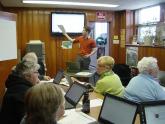
The New York State Education Department opened computer learning centers in 13 libraries across upstate New York. These centers are supporting a statewide initiative to provide affordable broadband, computer skills, and workforce development training to senior citizens, job seekers, and small-business owners. Each library provides new computers, free access to a wide variety of online journals, reports, and databases, and educational classes that are tailored specifically to the needs of its patrons.
Visitors to the Baldwinsville Public Library can attend classes covering a wide range of subjects including computer basics, Internet security and safety, Facebook and Skype, and Microsoft Office® software. The library provides one-on-one resume and cover letter assistance and will also begin a series of workforce development speaking seminars in April 2011. Aimed at small business owners, these presentations will cover topics such as following correct tax codes, advertising with local media, and applying for health insurance.
Patrons at the Western Sullivan Public Library can participate in numerous classes covering topics such as computer basics, Microsoft Windows® software fundamentals, Microsoft Office® software tips, and virus prevention. The library also offers computer assistance sessions allowing visitors to walk in and receive help with troubleshooting issues.
These libraries are some of the examples of how BTOP funds are making an impact across the state. The project is also creating a total of 76 new library positions for local residents. As of February 2011, the Education Department has filled more than 46 of these positions.
To see local news coverage about Western Sullivan Public Library, please visit here.
Last Updated: October 18, 2011.
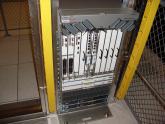
In June 2011, the North Florida Broadband Authority began construction on Phase I of the Ubiquitous Middle Mile project. Extending across 14 counties designated as Rural Areas of Critical Economic Concern (RACEC) by the Governor’s Office of Tourism, Trade, and Economic Development (OTTED), the new 1,200-mile fixed wireless broadband network enable high-speed broadband connectivity to as many as 150,000 households, 27,000 businesses, and 1,400 community anchor institutions including public schools, universities, libraries, healthcare facilities, public safety organizations, and government agencies. The network will also allow residents, businesses, and service providers to connect to the Internet with speeds up to 1 Gbps.
The North Florida Broadband Authority, a newly formed government entity established specifically for the purpose of bringing broadband services to the North Florida region, estimates the entire new fiber network will be completed by spring 2012. Once complete, North Florida will market its full suite of broadband services to Internet service providers at wholesale prices.
The organization is also developing training curriculum to prepare and educate residents about the new broadband network. Partnering with OTTED, North Florida will facilitate workshops across the RACEC counties to teach residents how to connect to the network through their local Internet service providers. BTOP funds have allowed North Florida to hire 12 full-time employees for construction. North Florida estimates it will hire an additional 20 full-time employees for construction and project administration in July 2011.
Last Updated October 18, 2011.
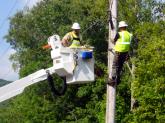
Steaming from collaboration among community development professionals, the North Georgia Network Cooperative (NGN) is using BTOP funds to enable a new technology-based economy in the North Georgia foothills.
By March 2011, NGN began construction on the 260-mile core of its planned 800-mile fiber optic network. As of May, 24 workers have installed more than 80 miles of fiber optic cable along the core network, deploying eight to 10 miles per week on average in the rural Georgia counties of Rabun, Towns, Union and White.
This core network is slated for completion by late fall 2011 and will deliver broadband speeds as fast as in most major metropolitan areas in the United States. NGN also will establish point-of-presence locations at county school systems, have a presence at a major university in the region, and improve broadband Internet speeds to offer 1 Gbps connections to most areas. In addition, several hundred miles of lateral lines will be built out from the core, making broadband more readily available to more than 42,000 households, 9,200 businesses, and 350 community anchor institutions.
The project also has a page on Twitter with the latest news.
Last Updated October 18, 2011.

On March 24, 2011, Northwest Open Access Network (NoaNet) started stringing the first 10 miles of an 830-mile fiber optic network that will create business and support better health care and education opportunities across Washington State.
This initial stretch of fiber optic cable, funded by BTOP, will bring high speed Internet connectivity to schools and community institutions in the rural community of Deming, which currently struggles with slow Internet and data connections.
NoaNet is also breaking ground on 19 other project sites throughout the state with more than 100 people working to extend another 350 network miles by the end of summer 2011. This investment will create opportunities by connecting rural community facilities such as state, federal and local government offices; public safety and medical centers; libraries; schools; and tribal centers – with high speed telecommunications infrastructure.
Once this network is complete, NoaNet’s expansion will enable more affordable access to high speed broadband for up to approximately 380,000 households, 18,000 businesses, and 1,300 anchor institutions across the state.
Last Updated October 18, 2011.
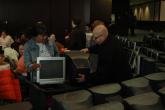
OneCommunity’s “Connect Your Community” project has provided computer training to 3,000 citizens across several cities including Cleveland and Akron, Ohio; Detroit, Mich.; Lexington, Ky.; and Bradenton, Fla. Aimed at expanding broadband adoption in low-income communities, the program teaches participants computer basics, Internet fundamentals, online safety and privacy tips, and software functionality. Participants must also develop an adoption plan, mapping out a personal approach and timeline to acquiring access to broadband and regularly using a computer.
BTOP funds have also allowed OneCommunity and its partners in eight communities to hire 105 full-time employees. Individuals hired for these positions are responsible for a variety of tasks including project administration and public broadband training.
The impact of the project can be felt across multiple communities. A total of 1,120 individuals have succesfully completed training classes and fulfilled their personal adoption plan. More than 1,600 individuals have signed up for computer classes in spring 2011. The project’s efforts to expand broadband adoption are evident at Lorain County Community College in Elryia, Ohio, where BTOP funds not only helped 181participants complete a six-week computer training workshop, but also provided each graduate with a refurbished personal computer. To see local news coverage, please visit here.
Last Updated: October 18, 2011
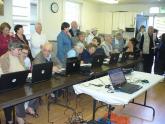
One Economy launched 93 Digital Connector programs in 60 cities around the country after receiving BTOP funds. Aimed at high school and college students, the Digital Connector program encompasses more than 156 hours of training on a variety of topics including computer basics, financial literacy, leadership development, and software training. Students must also contribute 56 hours of community service, using newly acquired computer skills to provide digital literacy training to their neighbors. These community service projects include teaching computer basics, Microsoft Office® productivity software, and Internet fundamentals such as creating e-mails and performing searches.
BTOP funds have also allowed One Economy to connect more than 2,500 housing units across California, Portland, OR Chicago, IL and South Dakota with affordable Internet broadband access. In each housing development, One Economy provides Internet wiring, conducts free training seminars on topics including computer basics and Internet fundamentals, and creates an online community portal where residents can find information on local services. In Northern California alone, One Economy has connected over 1,600 housing units, providing residents with Internet access and digital literacy training. In San Francisco, San Jose, and other nearby communities, over 500 residents have attended training sessions, learning how to access the network, use e-mail, and search for jobs online.
An enormous focus of the project is to increase employment opportunities. The One Economy offices across the country have brought on new full-time employees for support. One Economy is also creating a total of 159 new positions for local residents. Hired as Community Technology Associates, individuals are responsible for managing the on-site wireless network and leading training sessions. As of the end of 2010, One Economy has filled 18 of these positions. To experience the impact up close, view the project’s YouTube page.
Last Updated: October 18, 2011
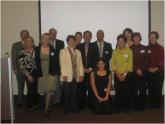
Libraries conjure up memories of books and learning about new subjects, ideas, and places. Today, OSHEAN Inc.’s BEACON 2.0 project is bringing significantly increased broadband capacity and Internet access to public libraries across Rhode Island so that residents can expand learning beyond the printed word.
Made possible by BTOP funds, the BEACON 2.0 project is using a $21.7 million grant to build a fiber-optic network and a $1.2 million grant to improve public computer centers in Rhode Island’s libraries. The 339-mile fiber-optic network will bring high speed Internet to over 50 community anchor institutions and provide improved access to over 400 schools and libraries across the state. The public computer center portion of the Beacon 2.0 project is led by Ocean State Libraries and will improve capacity, equipment, and training in computer centers at all of Rhode Island’s public libraries.
The Beacon 2.0 Library Computer Centers project will deploy 627 new computer stations in 72 libraries and establish mobile computer centers. OSHEAN and Ocean State Libraries increased the number of mobile labs to 12 after receiving a high level of interest from local libraries. Two multilingual trainers are currently working with libraries to determine how to best address the needs of local communities, including Spanish’ and Portuguese’ speaking populations. Library staff will then teach classes on a wide range of topics from how to set up an e-mail account to how to use Microsoft Office products and how to apply for a job online. The mobile labs will enable libraries to hold training classes without interfering with other visitors’ access to the libraries’ main computer stations. The project team hopes to eventually deploy video teleconferencing equipment in the mobile labs to simulcast programming at other branches or to archive training sessions for later use.
Library computer centers across the state will be further enhanced through the development of the Beacon 2.0 Network. The dedicated network will greatly improve access at schools, libraries, and other community anchor institutions statewide and Beacon 2.0’s 400 Gbps Internet capacity will allow these local institutions to connect up to 50 times faster than the speeds currently available to Rhode Island residents.
Together, the Beacon 2.0 Network and Library Computer Centers will enhance access across the state and extend the Internet’s benefits to all Rhode Islanders. For more information about the organizations and their projects, please see www.oslri.org.
Last Updated: October 18, 2011.
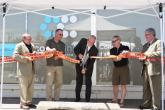
On June 22, 2011, the Pend Oreille County Public Utility District (PUD) held a ribbon-cutting event to celebrate the start of construction on its broadband infrastructure project. The event had an estimated 120 to 140 people in attendance, including representatives from the offices of local, state, and U.S. elected officials, PUD staff, and other members of the community. Several speakers, including PUD leaders and a representative from the governor’s office, delivered remarks about the benefits of broadband and thanked the community and supporters of the project.
The PUD project plans to bring affordable broadband access to unserved and underserved rural areas of the county in northeastern Washington State. Construction began south of Newport along U.S. Route 2, with fiber lines that will be part of a 565-mile network. As of early October 2011, nearly 100 miles had been deployed. When complete, this new network will increase reliability and upgrade broadband speeds to 3,200 households, 360 businesses, and 24 community anchor institutions.
Additionally, PUD used BTOP funds to hire construction crews with 35 total workers, and hired eight staff members, including five contractors as managers and inspectors.
Last Updated: December 7, 2011


























